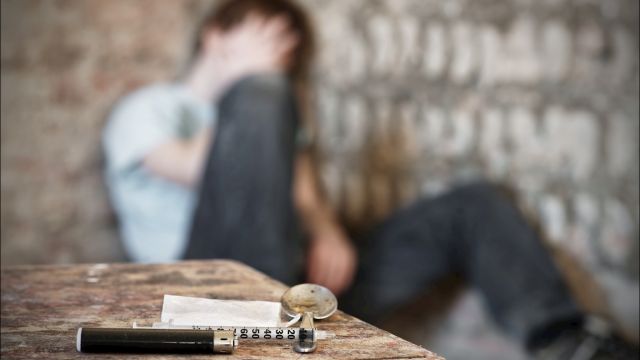The State's current approach to dealing with drug addiction is "broken" and needs to be reformed, according to a leading academic.
Dr Jo-Hanna Ivers, an associate professor for public health and primary care at Trinity College Dublin, was recently on the advisory council for the Citizens’ Assembly on Drugs Use, which had its final meeting in October 2023.
Across six meetings from April to October last year, the 99 assembly members had wide-ranging discussions that amounted to the most thorough consideration of Ireland’s existing drugs laws and policy in the history of the State.
"We talked about drug use at a population level, legal issues around people's lived experience as well as recovery and prevention," Dr Ivers said.
They found the most important thing was to identify the barriers that stop people from getting the help they need. What it comes down to is usually criminalisation and a lack of access to treatment.
After the six sessions, the assembly came up with 36 recommendations which were then submitted to the Government.
Dr Ivers said the main consensus was there needs to be a more health-based approach to treating drug addiction, along with a multi-department strategy to deal with the issue.
She said it is about breaking the cycle of drug addicts being criminalised. Those who are prosecuted for possessing drugs "often enter the criminal justice system instead of getting the treatment they truly need," she added.
Criminalisation
Currently, gardaí are asked to use discretion about whether someone should be referred for treatment or be prosecuted.
Dr Ivers said instead, they should be compelled to turn them over to addiction services so they can start treatment.
In a statement issued to BreakingNews.ie, a spokesperson for the Department of Justice said: "Possession of drugs remains illegal under current criminal law and therefore any person found to be in possession of such drugs may be subject to prosecution.
"The decision to prosecute individuals for personal possession is at the discretion of An Garda Síochána and the DPP. The adult caution scheme is a non-statutory scheme agreed by both agencies.
"We are committed to strengthening the existing adult caution scheme to ensure an efficient and effective means of implementing a prosecution avoidance policy when Garda members come in contact with adults with mental illness and addiction challenges.
"While the Department’s key strategic priorities include tackling crime, they also include strengthening community safety and reducing reoffending.
"The Department and the Minister for Justice are absolutely mindful of the fact that the needs of many people who interact with the criminal justice system are complex, and are often influenced by mental health and addiction challenges."
Drug treatment courts have become a fixture of how Ireland deals with this issue, and Dr Ivers said they do still have a role to play.
"There is still a place for them, because people will still find themselves in a situation where there is a barrier to treatment, and they need to access that.
"We know that the people that are coming to treatment are coming with complex needs."
Multi-department approach
These are people who are dealing with homelessness, co-morbidity, mental health issues, lack of education, and therefore, a lack of access to employment.
It means you leave the domain of health and enter the remit of housing, employment and education, hence the need for a multi-department approach.
"We have this ridiculous system where you have got a frontline worker trying to find somebody a house in the middle of the housing crisis, or trying to find access to mental health services when the system is already broken," she said.
These are workers trying to negotiate a job market for people who have no skills "at a time when we have never called for more skills," she said.
It all comes down to having a system in place so those who are dealing with people in treatment are not saddled with the responsibility of dealing with every one of their issues.
It is also about letting people know that there is a path to recovery, and guiding them that way instead of towards criminality. Helping people recover can benefit society in much greater ways than we think.
"Even if you don't care about people in addiction, recovery is good for everyone.
"Because people engage in service, they give back to their community, they give back to society. They enter the workplace, they become taxpayers. Recovery is good for everyone at the end of the day," she said.
People who do recover from addiction also tend to become advocates for recovery and help those who are going through the same thing.
Dr Ivers said instead of continuing the cycle of addiction, they have a chance to start a new cycle of recovery, which can have "ripple effects" for other people who may be struggling with addiction.
While Ireland is trying to change its approach to dealing with drug addiction, Dr Ivers said the US and the UK are way ahead of everyone else when it comes to recovery specifically, and there is a lot from them which we can learn.
Like recovery itself, Ireland is forging a new path with how it looks at addiction, but it is now down to the Government to get behind this new approach with political will and proper funding.







